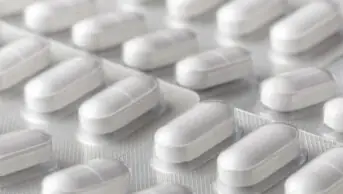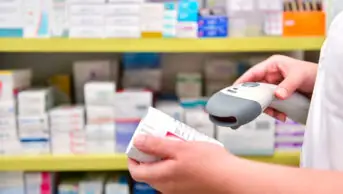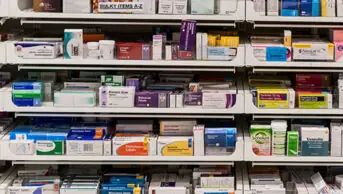
Courtesy of British Generic Manufacturers Association
Government proposals to include all biologics within the scope of price-controlled health service medicines could impact patient benefit and threaten NHS England’s targets to achieve £300m of savings on biologics by 2021, Warwick Smith, the director general of the British Generic Manufacturers Association and the British Biosimilars Association, has warned.
The proposal is part of a wider government consultation on changes to the statutory scheme to control the costs of branded health medicines, which will be enforced from the start of 2019.
It suggests that all biologics, including biosimilars, should be within the scope of health service medicines captured by the payment mechanism, price controls and information requirements.
“As biosimilars, while interchangeable by the prescribing clinician, are not substitutable at the point of dispensing medicines, competitive forces generally act more slowly,” the document says.
It adds that analysis undertaken by the Department of Health and Social Care (DHSC) has shown that the average price decline upon loss of exclusivity is significantly lower for biological medicines than for non-biological medicines, “with a c.70% average drop in expenditure for non-biological medicines compared to a c.45% drop for biological medicines”.
Smith said it made no sense for the government to intervene in pricing when competition or tenders already “very effectively” control prices of branded generics and biosimilars.
“In particular, the consultation appears significantly to underestimate the savings already delivered by biosimilars where we have seen price reductions of more than 80% for some products. It is therefore wrong to include products which are subject to competition via tendering in the statutory scheme or the [Pharmaceutical Price Regulation Scheme (PPRS)] and also apply an additional rebate of up to 25%,” he said.
“These proposed changes will significantly impact biosimilars, and manufacturers may be unable to launch products as a consequence. This could also impact the potential patient benefits of these medicines and threaten Simon Stevens’s objective of £300m of savings [by 2021].”
The statutory scheme for pharmaceutical pricing, together with the PPRS 2014, safeguards the financial position of the NHS by limiting the cost of branded health service medicines.
The other proposals being put forward by the government include setting out the expected annual payment percentages between 2019 and 2021, with provision for an annual review, to ensure that the scheme delivers savings, as well as ensuring best value and availability for NHS patients and continued support for pharmaceutical research and development.
In April 2018, the government changed the statutory scheme from a system of price cuts to one of payments made of a percentage of the value of branded health service medicines sales because it said it was a more effective and reliable mechanism for controlling costs.
In the proposed changes, the DHSC has constructed a forecast against which the payment percentage for 2019 can be set. The percentage is then set to recover the difference between forecast sales value and allowed sales value in each year.
Currently, the proposed payment percentages are 9.9% for 2019, 15.8% for 2020 and 21.7% for 2021.
The consultation closes on 18 September 2018.


